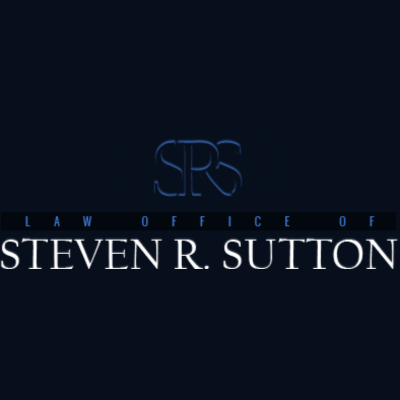Navigating the Complexities of Commercial Landlord-Tenant Law

The relationship between a commercial landlord and tenant is crucial for the functioning of businesses and the stability of commercial real estate markets. Understanding the legal framework governing these relationships is essential for landlords and tenants to protect their rights and responsibilities. This article explores the key aspects of commercial landlord-tenant law, including lease agreements, common disputes, and best practices for maintaining a harmonious relationship.
The Lease Agreement: Foundation of the Relationship
Key Components of a Commercial Lease
A commercial lease agreement is a legally binding contract that outlines the terms and conditions of the rental arrangement between a landlord and a tenant. Key components of a commercial lease typically include:
- Identification of Parties: Names and contact information of the landlord and tenant.
- Description of Leased Premises: Detailed description of the property, including its address and specific areas included in the lease.
- Lease Term: Duration of the lease, including start and end dates, and any options for renewal.
- Rent and Payment Terms: Amount of rent, payment schedule, and acceptable payment methods.
- Security Deposit: Amount of security deposit, conditions for its return, and any non-refundable fees.
- Use of Premises: Permitted uses of the property and any restrictions.
- Maintenance and Repairs: Responsibilities for maintenance and repair of the premises.
- Alterations and Improvements: Policies regarding tenant modifications to the property.
- Insurance Requirements: Types and amounts of insurance both parties must carry.
- Fault and Remedies: Conditions under which the lease can be terminated and the remedies available to the non-breaching party.
Types of Commercial Leases
Commercial leases come in various forms, each suited to different types of businesses and leasing arrangements. The most common types include:
- Gross Lease: The tenant pays a fixed rent, and the landlord covers all property expenses, such as maintenance, insurance, and taxes.
- Net Lease: The tenant pays a base rent plus some property expenses. There are three types of net leases:
- Single Net Lease: The tenant pays base rent and property taxes.
- Double Net Lease: The tenant pays base rent, property taxes, and insurance premiums.
- Triple Net Lease: The tenant pays base rent, property taxes, insurance premiums, and maintenance costs.
- Percentage Lease: This type is common in retail spaces. The tenant pays a base rent plus a percentage of their gross sales.
- Modified Gross Lease: A hybrid between a gross and a net lease, where both parties share some property expenses.
Common Disputes in Commercial Landlord-Tenant Relationships
Rent and Payment Issues
Rent disputes are among the most common in commercial leasing. Issues can arise from late payments, non-payments, or disagreements over rent increases. Landlords must ensure they have clear policies and adhere to them consistently. On the other hand, tenants should communicate proactively if they anticipate difficulties meeting payment obligations.
Maintenance and Repairs
Responsibility for maintenance and repairs is a frequent source of conflict. Lease agreements should define the party responsible for specific maintenance tasks and repairs. For instance, tenants may be responsible for maintaining the interior of their premises while landlords handle structural repairs and common areas.
Property Modifications
Tenants often need to modify the leased premises to suit their business needs. Disputes can occur if tenants make unauthorized alterations or landlords unreasonably withhold consent. Lease agreements should specify the process for requesting and approving alterations.
Lease Termination and Renewal
Disagreements over lease termination and renewal are also common. Issues may arise if tenants wish to terminate their lease early or if landlords want to reclaim the property at the end of the lease term. Clear terms regarding notice periods, renewal options, and conditions for termination can help mitigate these disputes.
Subleasing and Assignment
Subleasing and assignment involve transferring the lease obligations to a third party. Landlords typically require approval rights for subleasing or assignment to ensure the new tenant meets their standards. Disputes can occur if tenants sublease without permission or landlords unreasonably withhold consent.
Legal Remedies and Dispute Resolution
Negotiation and Mediation
Many disputes can be resolved through direct negotiation between landlords and tenants. Mediation involving a neutral third party can also effectively reach a mutually agreeable solution without litigation.
Arbitration
Arbitration is a more formal process than mediation. In arbitration, an arbitrator makes a binding decision on the dispute. This method can be quicker and less costly than going to court.
Litigation
If negotiation, mediation, and arbitration fail, parties may need to resolve their disputes through litigation. Litigation should be considered a last resort due to its expense and the time involved. However, it may be necessary for serious breaches of the lease agreement or significant financial disputes.
Eviction
In cases of serious lease violations, such as non-payment of rent, landlords may pursue eviction. State laws govern eviction processes and require landlords to follow specific procedures, including providing notice to the tenant and obtaining a court order.
Best Practices for Landlords and Tenants
Clear and Detailed Lease Agreements
Both parties should ensure their lease agreements are comprehensive and clearly outline all terms and conditions. Ambiguities in the lease can lead to misunderstandings and disputes.
Regular Communication
Maintaining open lines of communication can help prevent and resolve disputes. Landlords and tenants should regularly discuss any issues or concerns and address them promptly.
Documentation and Record-Keeping
Landlords and tenants should keep detailed records of all communications, payments, and maintenance or repair work. This documentation can be invaluable in resolving disputes.
Understanding Legal Obligations
Landlords and tenants should know their legal obligations under state and local laws. This includes understanding regulations related to safety, accessibility, and property maintenance.
Professional Advice
Seeking professional advice from attorneys, accountants, and real estate professionals can help both parties navigate complex legal and financial issues. This is especially important when drafting or reviewing lease agreements.
Conclusion
A complex set of laws and regulations governs the commercial landlord-tenant relationship. Both parties must understand their rights and responsibilities to avoid disputes and maintain a successful tenancy. Landlords and tenants can foster a positive and productive relationship by ensuring clear lease agreements, maintaining open communication, and seeking professional advice. At Ssutton Law, we are dedicated to helping landlords and tenants navigate the intricacies of commercial leasing, providing expert guidance and representation to protect your interests.






